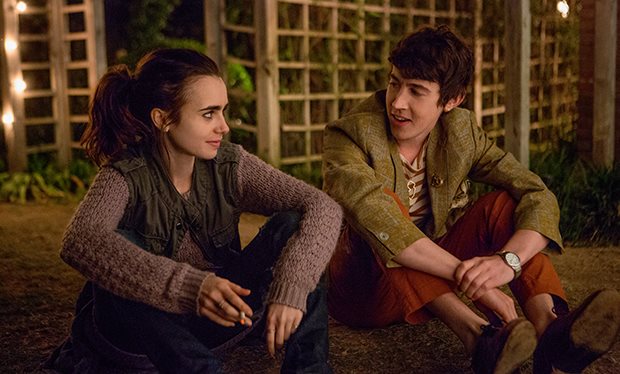By Sophia Simon-Bashall
Content note – eating disorders, anorexia
Netflix have done it again. They’ve managed to create something dangerous, and they’re trying to pass it off as helpful, a conversation starter. The show Thirteen Reasons Why (which, somehow, is being renewed – help us all) came under a significant amount of criticism, all of which was completely fair. The show was trivialising, unnecessarily graphic and triggering, and may have even inspired tragic actions taken by viewers.
Unfortunately, Netflix hasn’t learnt its lesson following the response to their show. Either that, or it really does value money over peoples’ lives – because the sad fact is, people are drawn into media such as this, especially when they’re already vulnerable. This is what concerns me most about the site’s new film, To The Bone. If you haven’t already heard about it, To The Bone is about anorexia. It’s about a middle-class white girl who is conventionally attractive, cisgender and heterosexual. It’s a story we’ve all seen before – because media surrounding is very much a visual phenomenon. And that is a major problem.
The trailer alone was enough to be upsetting, and caused considerable damage instantly. Stills from the 2 minutes and 24 second teaser have been put up on pro-ana sites, and tagged under ‘thinspo’ on Tumblr. Some might find this shocking, but I’m not at all surprised. As an eating disorder survivor, with anorexia at the heart of my history, that trailer made me deeply uncomfortable. Even though there was much they got wrong, the images portrayed were familiar – painfully so. The close-up shots of Ellen’s – the main character’s – protruding bones looked just like the images I used to scroll through, just like the image of ‘success’ I had pinned in my mind. I am ashamed to admit that my immediate response was not to be upset or even angry. I paused the trailer on the shot of her jutting spine and I thought “that used to be me”. I thought “I could be that again”. I thought “I could do even better”.
The makers of the film have defended their choice to use imagery such as this. They have said that it is meant to ‘serve as a conversation starter’, not to glamorise eating disorders. Whilst that’s a worthy intention, there would have been far better ways to go about this. They may not have wished to romanticise anorexia, but that is precisely what they’ve done. Depicting how sick and unhealthy it is to do these things to your body isn’t going to put people off if they’re in a vulnerable place. It’s not going to help sufferers of anorexia realise that what they’re doing is harmful. For many with the illness, that is precisely the point. Besides, how can these images of sickness be categorised as ‘undesirable’ when they are not at all dissimilar to those we see in magazines, on catwalks, on red carpets? How do we understand Ellen’s behaviours as disordered when they are those which we are all actively encouraged to partake in by the media and those around us? How do we separate this depiction of anorexia from the images and ‘tips’ used to fuel the illness?
I know that people who will be harmed by this content will watch it, because I am one of those people and I haven’t stopped thinking about it since the trailer was dropped. I feel compelled to watch it, not because I expect the film to shed any light on the reality of living with anorexia, nor because I think it’s going to provide a sense of hope. I’ve felt compelled to watch it because I have an eating disorder, and eating disorders thrive on this sort of thing. I’ve been sucked in by this film, and I’m over four years into recovery. I’ve been set back by it, and I’ve built up a lot of resilience against disordered thoughts and external triggers. It terrifies me to imagine how those new to recovery, or not yet ready for it will be affected. It terrifies me to think how this film will be used by people who are so sick that they see the portrayal of Ellen’s sickness as aspirational and inspirational. It terrifies me to think that those at Netflix genuinely believe that this could be anything other than incredibly harmful.
If you need a support with an eating disorder you can visit www.b-eat.co.uk (UK-based) or www.nationaleatingdisorders.org (US-based)
This post was brought to you in collaboration with Powered By Girl.
